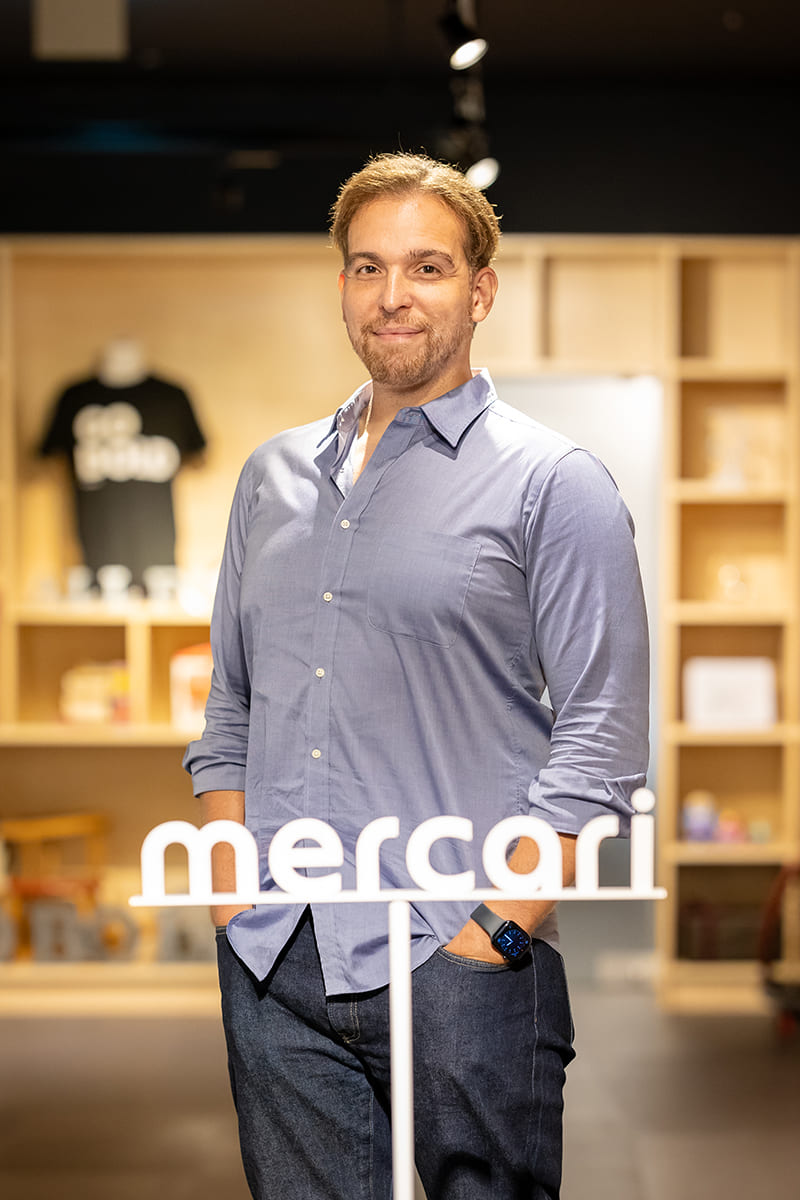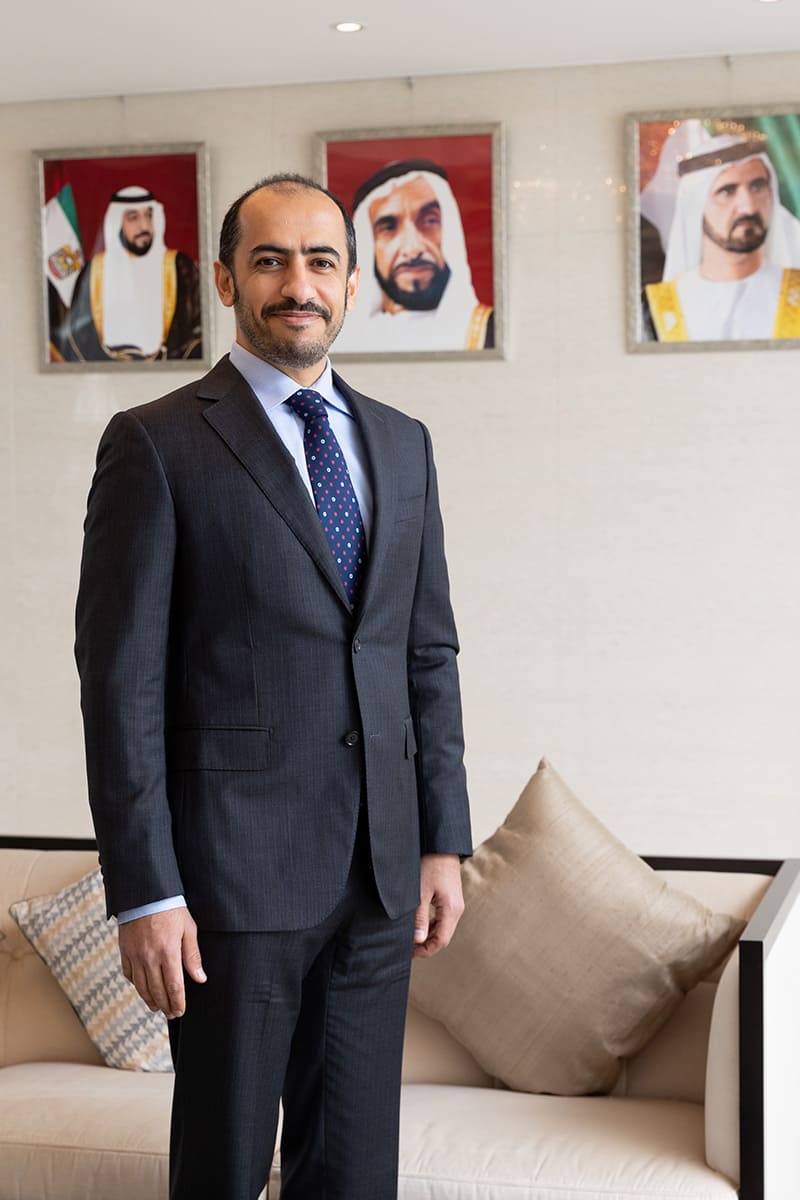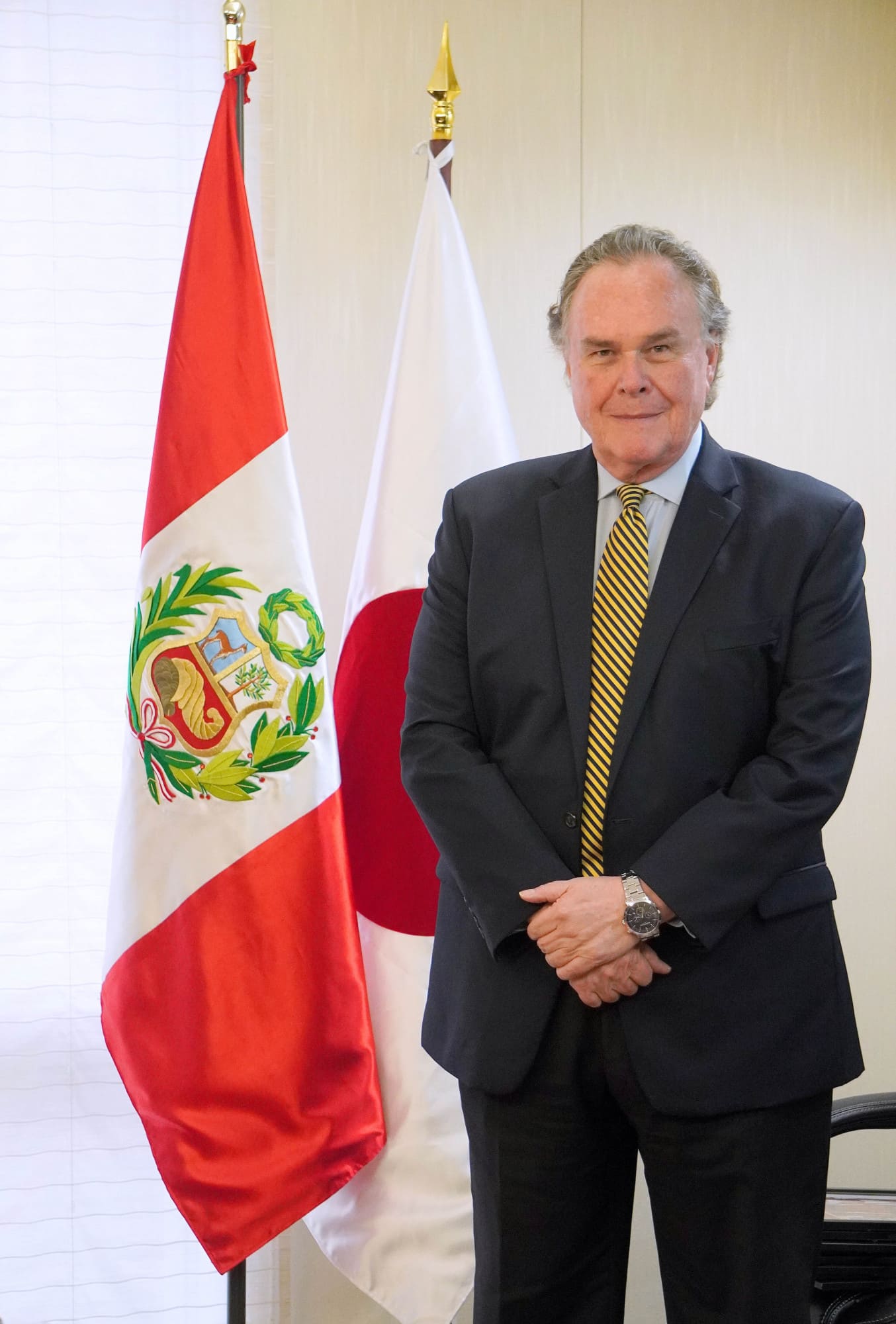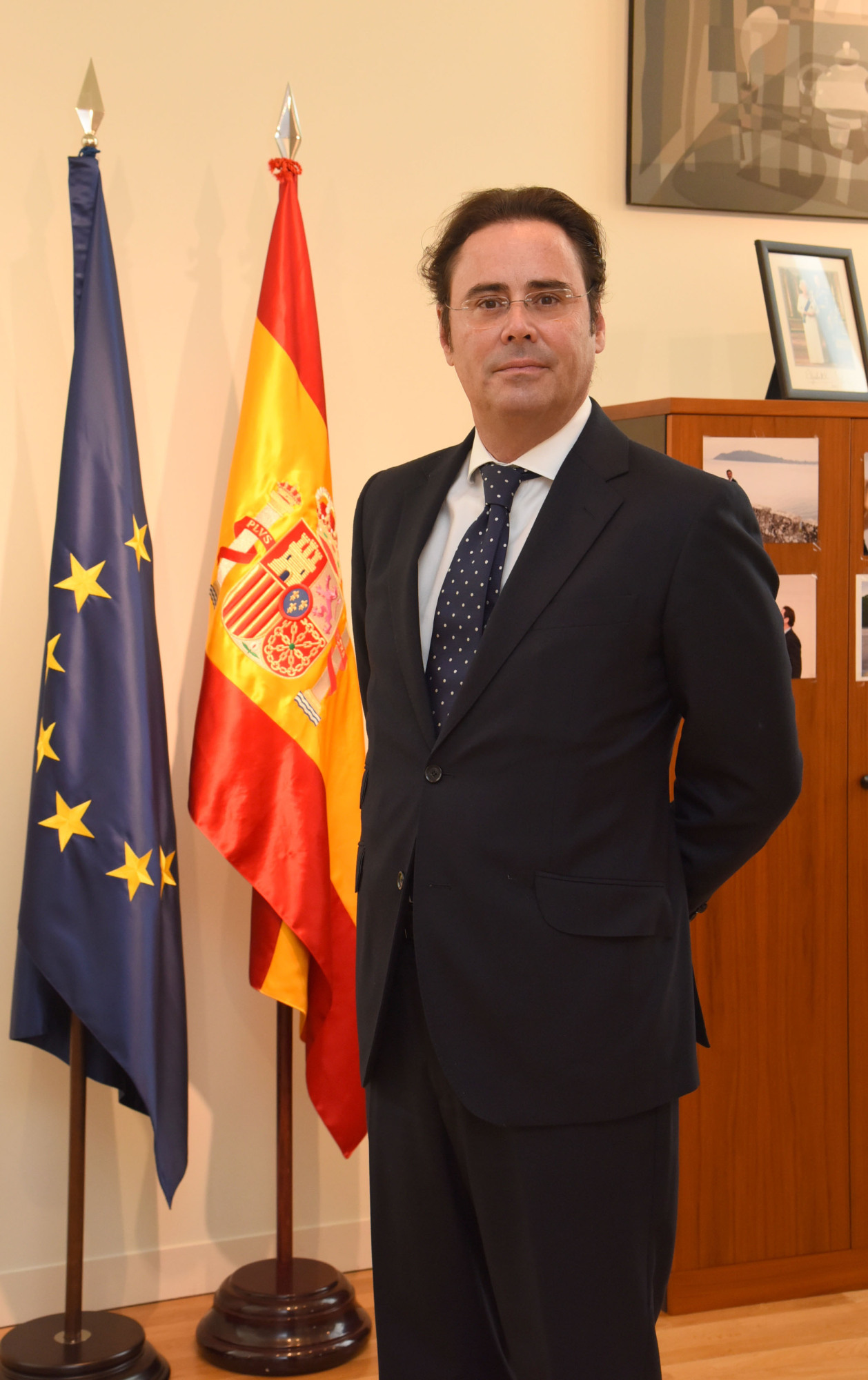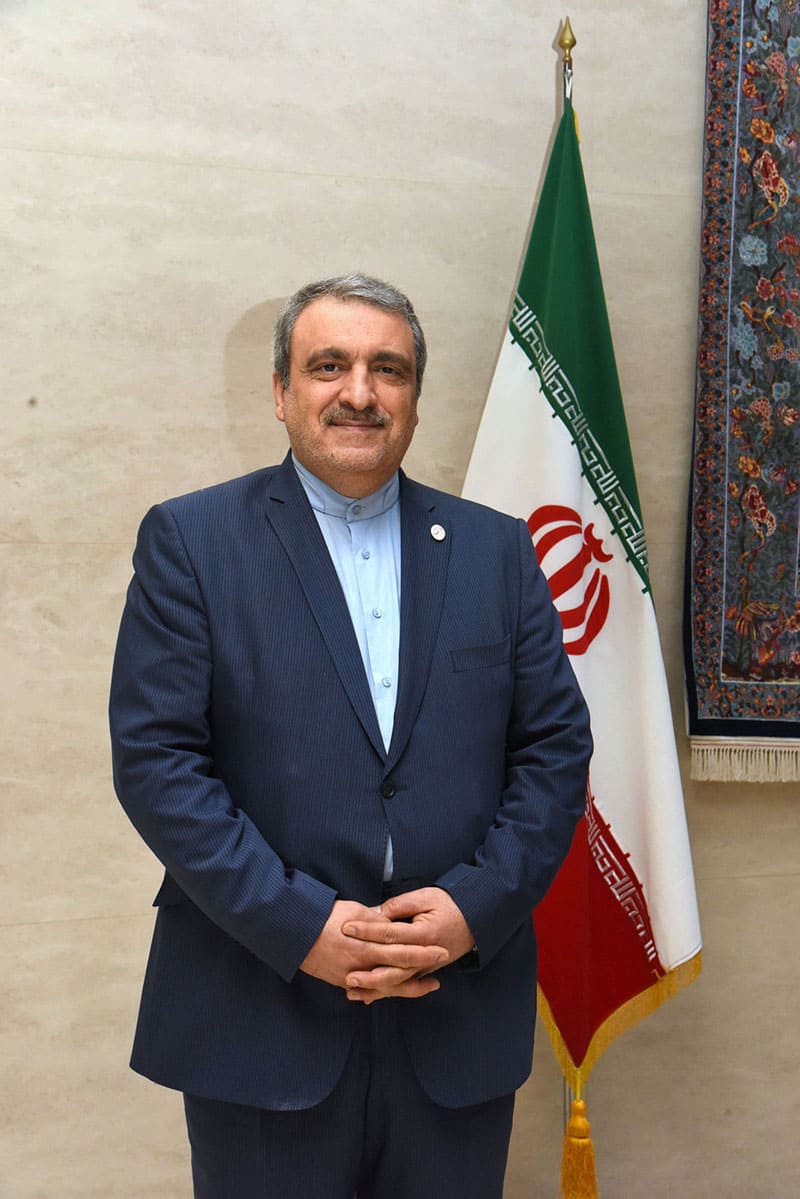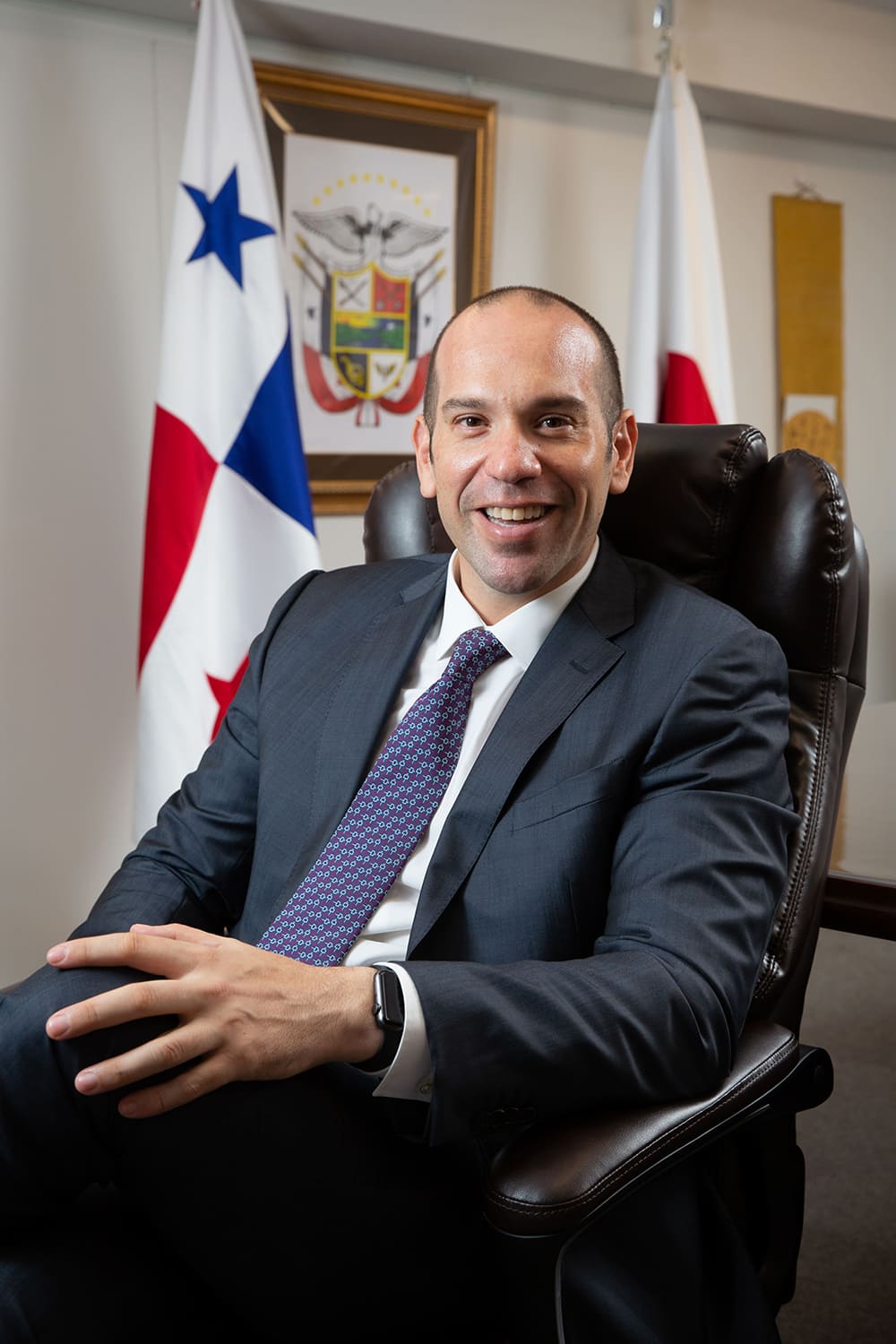
November 30, 2020
Businessman ambassador opens Panama connections
Shaped by U.S. life and military school, Pere once had nation’s ‘coolest job’
- Name: Carlos Pere
- Title: Ambassador of Panama (since October 2019)
- URL: http://www.embassyofpanamainjapan.org/jp/
- DoB: Oct. 7,1974
- Hometown: Panama City
- Years in Japan: 1
With both a father and grandfather who served their country as diplomats, it might seem that Carlos Pere is simply following in the family footsteps. In fact, however, he had spent his entire career in business before embarking upon his first diplomatic assignment as ambassador to Japan last October.
“I had previously worked on the Panamanian president’s election campaign, and he wanted someone with more of a commercial background than a diplomatic one for the job,” Pere explained.
Before taking on his role in Tokyo, Pere had what he laughingly describes as “probably the coolest job in Panama” as commercial advertising director for MASmobile, the country’s largest telecommunications company. MASmobile also happens to be the sponsor of Panama’s national soccer, baseball and basketball teams.
He is pleased to have the opportunity to bring his business acumen to his latest position and looks forward to further enhancing ties with Japan across various sectors, including exports and the maritime industry.
Pere has previous experience of living abroad, having moved to the USA at the age of 5 for his father’s work. He credits the 10 years he spent there for shaping both his English skills and his core values. “I was sent to a military school in Virginia when I was 11 years old. It was a game changer for me — it makes you very responsible and independent. I enjoyed every single moment of it!” he recalled.
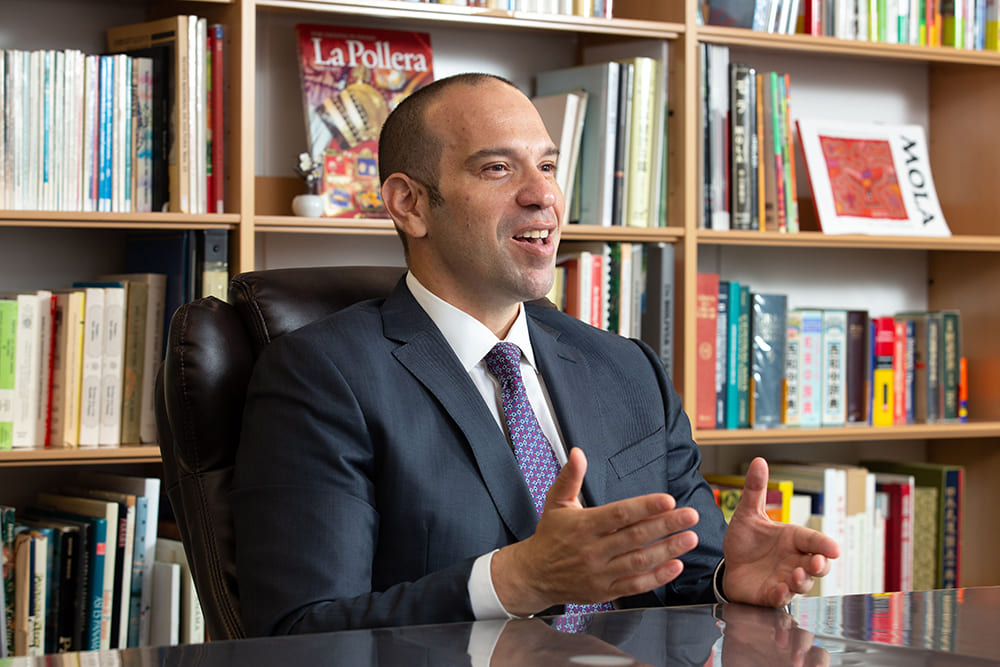
With its geographical position in Central America, Panama is a central hub in more ways than one. “It connects North and South America, and the Panama Canal connects the Atlantic and the Pacific,” Pere pointed out. “It shortens the passage of goods being transported around the world. For example, when sending something from New York to Los Angeles, people would rather take it through the Panama Canal than overland from the East to the West Coast.”
A key issue now for Panama is a water management system that will both improve the functionality of the canal and ensure a constant supply of drinking water for the population. “Bordered by two oceans, you might think that the canal doesn’t need water, but it operates on fresh water. When we don’t have enough rain and the dry season is long, it affects the canal, and so we need this water management initiative to meet the needs of our country,” Pere explained.
Like almost every other country, Panama’s economy has been hit by border closures due to COVID-19, but on Oct. 12 it opened its doors to foreign visitors again, and now anyone can enter the country without having to be quarantined. “We understand that every country has its own rules and we must respect them,” Pere said. “But the economy of Panama depends on foreign people coming to Panama, for tourism and for trade.”
He acknowledged there are potential risks but said Panama is prepared to take the lead on opening up its borders. “We are an open-book country, and we are ready to share any knowledge that we can,” he said.
On the topic of international travel, Pere pointed out that Panama offers flights to 82 cities throughout the Americas. He would very much like to see a direct flight service opening up between Japan and his homeland, with Panama eventually becoming the gateway for Japanese tourists in Latin America.
“Right now, Japanese tourism is not where we would like it to be. Japanese have short vacations, and it takes too long to get to Latin America. If we can reduce that time, then we can increase the capacity for tourism in our region,” he said.
Panama and Japan have enjoyed diplomatic ties since 1904. Since arriving in Japan, Pere has developed a special affection for the Ehime city of Imabari, the sister city of his hometown, Panama City. Both cities have large shipbuilding industries. “And did you know that 70% of the Japanese shipping fleet is under the Panamanian flag?” he asked.
Pere is a self-confessed foodie. While it seems there are no Panamanian restaurants in Japan, he shared his version of a perfect meal: arroz con pollo (chicken with rice) served with sweetened plantains and ensalada de feria (fair salad), a pink salad whose name derives from the fact that it is typically served at festivals and fairs; it contains potatoes, beets, eggs, celery and mayonnaise.
“This a home-style meal, and you have the salty chicken and rice, the creamy salad and the sweet plantain. It’s like an explosion of taste in your mouth!” Pere declared.
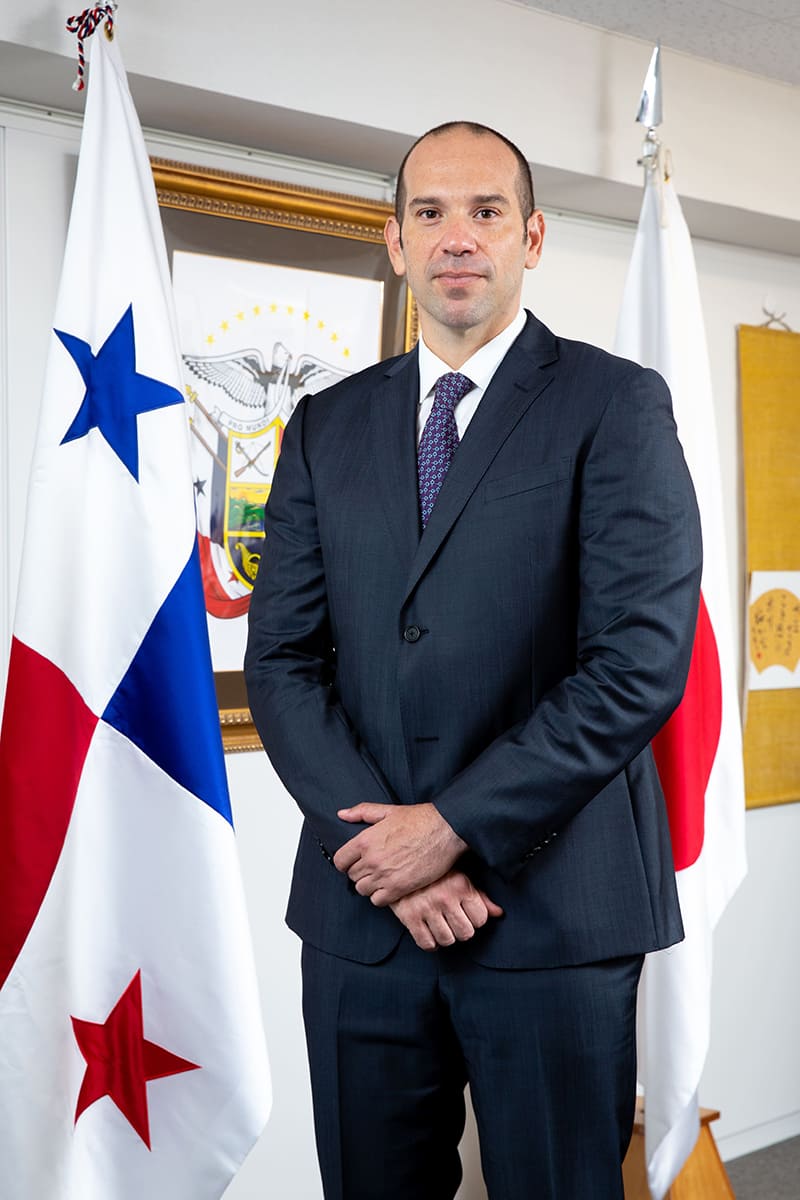
With one year under his belt, Pere is looking forward to further developing his personal relationship with his host country. Ever the businessmen, he expressed the wish to see more Panamanian products in Japan’s supermarkets and convenience stores in the near future. He also wants to continue exploring what he calls Japan’s “hidden corners,” noting that often it is the unexpected encounters that lead to the best memories.
Moreover, Pere is also working on his Japanese-language skills, with twice-weekly private lessons, schedule permitting. He already speaks Spanish and Portuguese fluently and has a working knowledge of French. “Before I leave Japan, I’d like to be able to give a speech in Japanese!” he said with a smile.

